Leaders of Norway’s state oil company Equinor admitted once again at a Parliamentary hearing on Tuesday that they’d made lots of mistakes during their expansion into the US. Former board leader Jon Erik Reinhardsen also revealed that total losses tied to Equinor’s US investments have now risen to more than USD 24.5 billion.
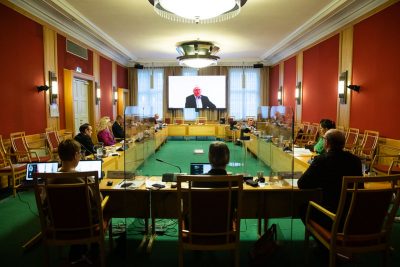
That’s equal to NOK 232.7 billion, which Reinhardsen admitted was a clear indication that the company’s venture into the US “did not yield the results” that were expected.
Reinhardsen’s predecessor, Svein Rennemo, who served as chairman of the company when it was still called Statoil, went further than Reinhardsen: “When the board said ‘yes’ to the US projects, we should have said ‘no.'” He added that all the losses “have damaged the company. We made that mistake.”
Media commentators, meanwhile, have branded Statoil/Equinor’s expensive expansion into the US as the largest industrial scandal in Norwegian history. Efforts are now underway to clean up both the ill-fated US operations and the company’s balance sheet.
‘Closed’ hearing forced to reopen
Reinhardsen and Rennemo were among both Statoil/Equinor officials and former oil ministers called to testify at the hearing that some Members of Parliament initially tried to close to the public. A reportedly slim majority of MPs sitting on the Parliament’s committee handling energy and environment issues had claimed last week that they needed to keep out the media and others because financially sensitive information could be presented.
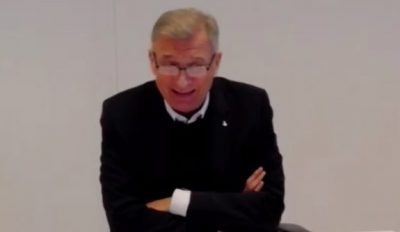
Newspaper Dagens Næringsliv (DN), which has exposed Equinor’s deeply troubled UN operations in great detail over the past several months, could quickly report that oil analysts, economists and professors strongly objected to the closure. They also wouldn’t buy the argument that the hearing should be closed because of any financial sensitivity.
Even current Equinor officials reported that they wouldn’t be releasing any new financial information that could affect Equinor’s stock price, while commentators and newspaper editorials claimed through the weekend that politicians were instead making a “pathetic” bid to hide their own failure to better monitor Equinor’s international activity. The Norwegian government remains Equinor’s biggest shareholder, with a 67 percent stake.
Failed attempt ‘to protect their own ministers’
“There’s only one reason that the Parliament wants to close the Equinor hearing to the public,” wrote DN‘s finance editor Terje Erikstad on Saturday. “The political parties want to protect their own oil ministers, so that their incompetence and quiet acceptance of this most wasteful use of public money could be downplayed as much as possible.”
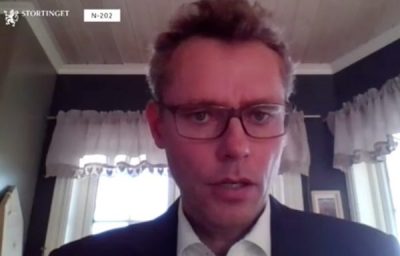
Two former oil ministers were called in to answer questions, along with the Statoil/Equinor officials and current Oil Minister Tina Bru. Most all of them blamed the huge losses largely on the “unforeseen” collapse of oil prices in 2014, even though high costs, the Norwegian offshore company’s lack of experience in land-based oil and gas projects, and a clash with US culture played big roles, too.
“If you look at the analyses at the time, strong growth in demand for oil and gas was expected, with oil prices developing in line with that,” claimed Ola Borten Moe, the Center Party politician who now works in the oil business himself. He was oil minister during the former left-center government led by the Labour Party, which had itself encouraged international expansion as a means of ensuring growth.
‘Hindsight is always sharp’
“Nobody foresaw an oil price collapse,” said Moe, a pro-oil politician not known for admitting fault of any sort. He noted that Statoil/Equinor has since accepted criticism that its oil price expectations were far too optimistic. Moe also noted how the US went from being a major importer of oil to become a major exporter, because of its ventures into shale oil and fracking. That also changed supply dynamics while Statoil was setting up its US operations.
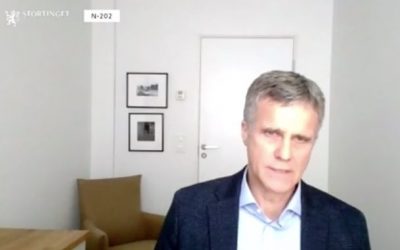
Former Statoil CEO Helge Lund, who has been criticized for his “aggressive” growth strategy that sent Statoil into the US, admitted at Tuesday’s nearly three-hour long hearing that Statoil paid too much for its investments when the oil price was high. He also admitted that “it was my responsibiity that we didn’t see the internal control challenges in the USA earlier.”
The main issue at the Parliamentary hearing, however, involved communication between Statoil/Equinor and its biggest shareholder, the Norwegian government. Lund claimed it was “good” and met the demands for equal treatment of all shareholders.
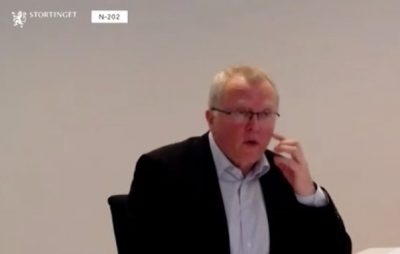
Eldar Sætre, who just stepped down as Equinor’s CEO pending retirement, also said the company always aimed for a “good and trustworthy dialogue.” Top management regularly meets with the Oil Minister and top ministry officials after quarterly reports are released. Sætre said it was “hard to say” whether the Norwegian government involves itself more or less than other Equinor shareholders, adding that the ministry often had questions but left the business of running the company to its board and management.
Then it was the ministers’ turn to defend their roles, and why they hadn’t detected Statoil/Equinor’s heavy losses in the US as they built up. Moe stressed that the company’s board and management are ultimately responsible. When asked whether he was aware of any worries about the US operations, or asked critical questions, Moe said he couldn’t see any concerns at a time when Statoil was also investing in Angola, Nigeria and Azerbaijan.
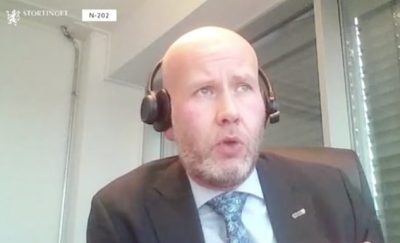
Tord Lien, who served as oil minister for the Progress Party from 2013 to 2016, said the ministry should have received more information about the trouble in the US from Statoil/Equinor officials. He recalled that there was lots of talk about the oil price collapse in 2014, and the massive cost-cutting that demanded. He insisted, though, that he and the ministry “followed up well enough with the information we had.”
Now its up to current Oil Minister Tina Bru from the Conservative Party to follow up Equinor as it moves forward, not least with more emphasis on renewable energy and under a new CEO, Anders Opedal, who took over on Monday. She took over as oil minister just a few months before DN revealed the extent of Equinor’s losses.
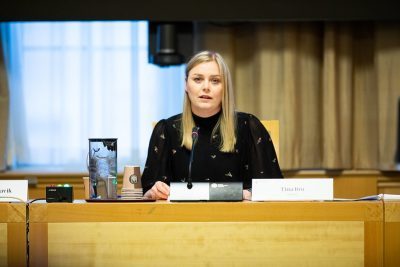
Bru confirmed that the ministry had not been made aware of all the problems in the US and repeated that Equinor “should have shown more openness.” Only now has the company finally gone along with state regulators’ request that they report results for the US separately, instead of lumping them together with all other international operations.
Bru now sees a need for the ministry to better follow Equinor’s operations abroad, after the company has taken risks that were too great and underestimated their consequences. She said it was important that Equinor will also now break out results from its ventures into renewable energy.
“It’s still the board and the management who are responsible,” Bru said, for the company’s operations and results. “And there’s still a lot of improvement work ahead.”
NewsInEnglish.no/Nina Berglund

